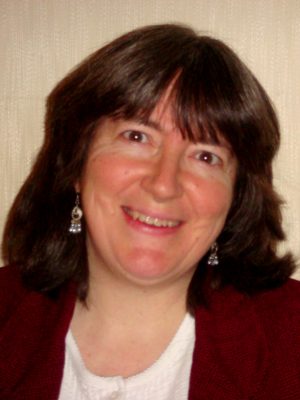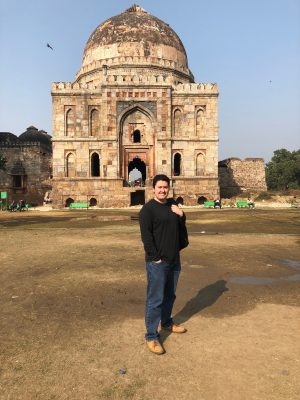Meet Our Current Fellows
Carol J. Gray, Crandall Cordero Fellow
Carol J. Gray, a Crandell Cordero Fellow in UConn’s Political Science doctoral program, came to UConn because of her passion for human rights. An attorney in her first career, Carol was a Prettyman Fellow at Georgetown University Law Center then became a public defender. She received a National Association for Public Interest Law fellowship to work on death penalty cases in Georgia for two years. Carol was a Rotary International Ambassadorial Scholar attending American University in Cairo’s International Human Rights Law program when the Arab Spring struck. Her front row seat to Egypt’s Revolution lead to her doing an oral history of an Egyptian human rights organization that played a critical role in the uprising. As a Fulbright Scholar in Montreal, she set up a human rights internship for 50+ volunteers who, like Carol, were inspired by the stories of Egypt’s human rights activists. Carol’s human rights team assisted in the transcription of 100 hours of interviews which are now the basis for Carol’s dissertation on “Law as a Site of Struggle” in Egypt. Carol regularly presents at conferences of the “International Studies Association” and “The Social Practice of Human Rights.” She is currently teaching “Gender and Reproductive Law and Politics” at UConn and is a W.E.B. Du Bois Community College fellow at the University of Massachusetts in Amherst where she lives with her family.

Marc Reyes, Crandall Cordero Fellow
I didn’t take my decision to attend UConn lightly. I’m Midwestern born and bred, and a regional move for the better part of a decade weighed on me, but, thankfully, UConn encompassed some exceptional elements and distinguished itself incredibly well. The talent and experience at UConn, both in faculty, administration, and student body, is unmatched. The resources available here, and proximity to resources fuel my research as a U.S. foreign relations history scholar, giving me access to primary sources without having to set foot on a plane. Having access to top-notch archives and libraries (not to mention top notch librarians and archivists) gave me confidence to expand my research even before I had sent my acceptance letter. Not insignificantly, UConn financially supports my work, from the beginning. Without ample funding, I could not undertake research in foreign countries or present at national and international conferences.
My research centers on the United States’ Cold War-era relationship with India, particularly how ideas of economic and political development influenced U.S.-Indian diplomatic relations. In my early research days, I focused on U.S. efforts to modernize Indian agriculture, and was able to expand my focus at UConn to include U.S. involvement in Indian oceanography, taking advantage of our strengths in maritime studies. Now I am a little over a month into my year in India, learning Hindi and conducting research for my dissertation, a political and cultural study of India’s atomic energy program and its transformation into a nuclear weapons program. I am a proud 2018-2019 Fulbright-Nehru Fellow, and I owe much credit to working so closely with the incredibly effective and tireless staff of UConn’s Office of National Scholarships & Fellowships. Their advisors read many (many) drafts of my grant proposal, offered insightful advice as I revised, and prepared me for the joys and challenges of living abroad.
As a Crandall Cordero Fellow, I’ve met and grown close to a remarkable group of academics. Because the fellowship provides mentors to new students, I have never felt alone or lost, and I’ve always had other students take me under their wing and offer their hard-earned wisdom. I know the Fellowship staff works diligently to make the Fellowship program stronger, and I always enjoy and benefit from their events. I never forget this support is possible because of dedicated professionals and when I am struggling with research or chapter revisions, I remember this trust placed in me.
